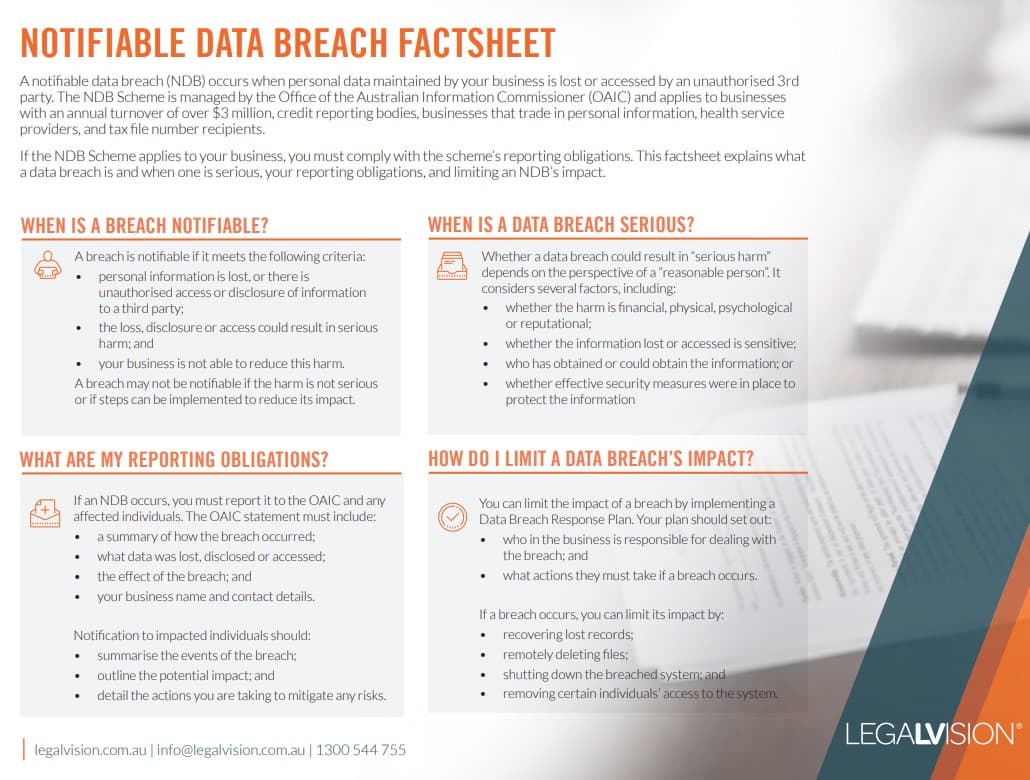It is common for businesses to share sensitive commercial information with each other as part of their commercial arrangements, even before establishing a business relationship. They commonly impose an obligation of confidence on each other, requiring recipients to keep the shared information confidential. This article will explain what a duty of confidence is and what it means if a breach of confidence has occurred.
Obligations of Confidentiality Under a Contract
When you disclose information to another party, and you want to keep that information confidential, you must either:
- sign a confidentiality agreement; or
- include confidentiality provisions in a contract with the other party.
This agreement or contract should clearly outline the parties’ obligations to keep certain information confidential. Whenever possible, you should:
- specify the types of information you want to be confidential;
- clarify whether the confidentiality provisions apply to both parties or just one;
- state how the recipient can use the confidential information;
- impose any restrictions on who the recipient can share the information with; and
- determine how long the confidentiality provisions will remain in effect.
The Consequences of Breach of Confidence
If you have obligations under a contract to keep information confidential and you fail to do so, you breach your contractual obligation. This breach could lead to various legal actions against you. For instance:
- you might need to compensate the other party for breaching the contract;
- the other party can seek an injunction from a court, prohibiting you from further sharing the confidential information; and
- they may also seek a court order of ‘specific performance,’ compelling you to take measures to protect the confidential information.
Even if someone discloses confidential information to you without contractual protection, you may still have an obligation to keep it confidential. This means that regardless of whether you have signed a confidentiality agreement, you might still owe obligations to the disclosing party. This duty of confidentiality can arise not only from a contract but also when contract formalities have not been completed.
Continue reading this article below the formWhen Does a Breach of Confidence Occur?
There are three essential elements to establish whether you have breached confidence. We will explain further below.
1. Information Must Be Confidential
First, your information must actually be confidential.
Moreover, in cases where a contractual obligation of confidentiality exists, the determination of whether the information is truly confidential might depend on the contract’s definition of confidential data. Occasionally, confidential information might encompass the contract’s existence itself.
2. Circumstances Create an Obligation of Confidence
Not every instance of information sharing between parties implies an obligation of confidence. Instead, it depends on the circumstances and the relationship between the parties. If you and the other party have entered into a contract that outlines confidentiality obligations to keep information confidential, then an obligation of confidence will arise. Moreover, certain relationships also create an obligation of confidence.
3. Unauthorised Use of the Information
It is crucial to specify how the information will be used. This means demonstrating that the party obligated to keep the information confidential actually used it.
Whether the disclosing party consented to share the information with a third party may affect this aspect. This determination will depend on the contract terms and the situation at hand.

This factsheet explains what a data breach is and when one is serious, your reporting obligations, and limiting an NDB’s impact.
Key Takeaways
It is common for parties to have their confidentiality obligations covered under a contract, whether that be an NDA or contracts covering their relationship. It is important that you understand these confidentiality obligations to ensure you do not breach such obligations, and what the consequences of such breach will be.
If you have any questions about breaches of confidentiality obligations, our experienced contract lawyers can assist as part of our LegalVision membership. For a low monthly fee, you will have unlimited access to lawyers to answer your questions and draft and review your documents. Call us today on 1300 544 755 or visit our membership page.
We appreciate your feedback – your submission has been successfully received.












